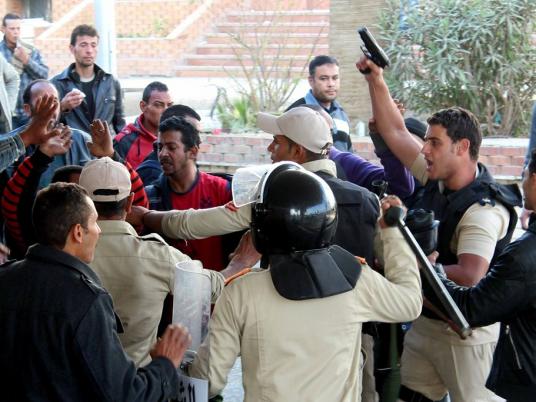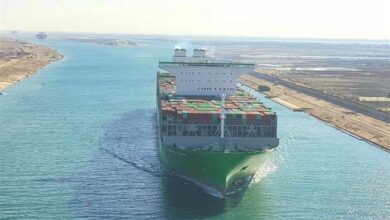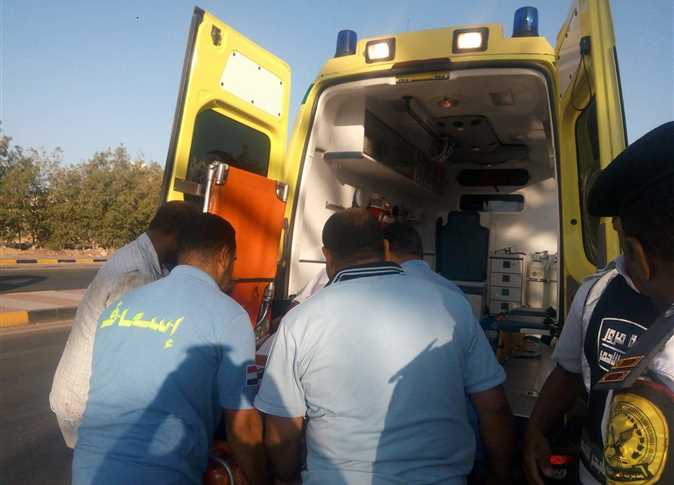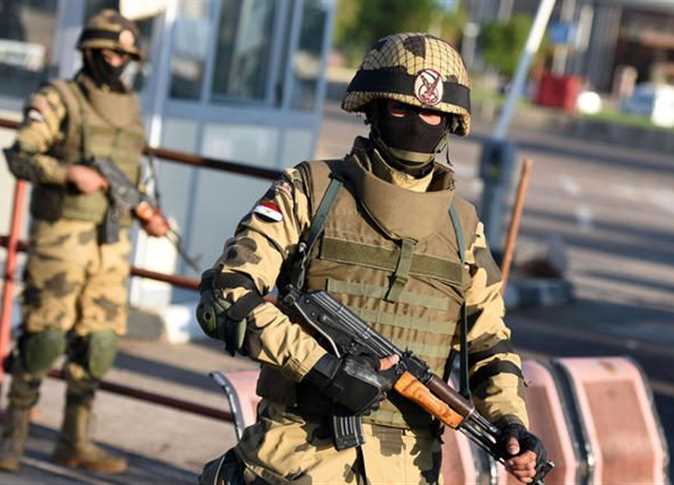
On 25 January 2011, the first martyr of the revolution fell in Suez Governorate, marking a turning point in protesters’ confrontations with the state and its abhorred, heavy-handed security apparatus.
Two years later, as Egyptians commemorated the second anniversary of the uprising, violence escalated in Suez, killing nine people in one day — the first casualties of the week’s violence.
Since then, all eyes have been on Egypt’s canal governorates of Suez, Port Said and Ismailia, where these confrontations took a bloody turn, along with the sporadic clashes in Cairo.
President Mohamed Morsy declared a month-long state of emergency and imposed a curfew starting Monday in the three governorates, from 9 pm to 6 am.
But Suez residents have been raised on defiance and resistance, a history they carry proudly, as well as palpable resentment toward the state. At curfew, residents took to the streets in mass protests, and plan on doing so daily for the duration of the state of emergency.
They chanted: “The state of emergency will only be imposed on our dead bodies.”
On Tuesday, Morsy said he was reconsidering the decision to impose the state of emergency.
Violence, two years on
Thousands protested after Friday prayers in Suez last week, coinciding with demonstrations nationwide, to demand retribution for deaths of revolutionary martyrs and reject the Brotherhood’s monopolization of the state, as well as the divisive Constitution.
Protesters later assembled around the governorate headquarters, where clashes erupted with security forces, who attempted to disperse them using tear gas. The other side responded by hurling stones, resulting in dozens of injuries.
Some protesters managed to storm the building and staged a sit-in, while others arrived at the security directorate.
The scene in Suez was the bloodiest on Friday, with the highest death toll. But unlike January 2011, when the opposing parties in the conflict were clear, accounts of this week’s incidents by doctors, policemen and politicians vary.
Doctors at Suez Public Hospital say the majority of bullets they’ve seen are not police bullets, but rather locally made ammunition.
Residents, on the other hand, say police fired randomly at protesters around the security directorate, citing an account given by Major General Essam Refaat, who said police officers are investigating one conscript for “erratic behavior” after he saw a colleague hit with birdshot.
He added that some conscripts suffered hysterical fits due to the pressure they faced while securing government buildings, during which one of conscripts was killed and another 40 were injured.
Civil powers such as the Wafd, Ghad al-Thawra and Nasserist parties accuse Central Security Forces of sabotage, claiming that eyewitness accounts of shop owners in downtown Suez blame conscripts for suddenly losing control and destroying cars and shop windows in the area. Others reportedly fled the city, refusing to obey orders and face off with protesters.
The National Salvation Front (NSF) opposition coalition in Suez called for the formation of a judicial committee to investigate the nine deaths, rejecting any politicized committees and decisions made by Morsy.
By Saturday, Suez residents were grieving and furious.
That same day in Port Said, havoc ensued after the verdict in last year’s football violence recommended death sentences for 21 defendants, leading to more fatalities and a viciously volatile cycle that has yet to subside. This cycle has also reverberated in cities around Egypt.
Security conditions deteriorated considerably in Suez later on, as three of its five police stations were set ablaze: Arbaeen, Suez and Faisal. The fires were reportedly started by the prisoners and their relatives on the outside.
Police and army forces say they foiled attempts by unknown assailants to free prisoners at Ataqa prison. Meanwhile, the governorate's administrative judiciary building, anti-drug administration building and some cars in the security directorate’s garage and fire department headquarters were also torched.
Though exacerbated this time around, the scenes were reminiscent of the collapse of the Interior Ministry’s security apparatus during the 25 January 2011 revolt. While the army was deployed this week to restore order in Port Said and Suez, its intervention was limited compared to two years ago.
The Muslim Brotherhood has all but vanished from the scene, while Salafi groups formed popular committees with the residents who scoffed at Morsy’s curfew.
On Monday and Tuesday, the situation had grown relatively calm, and work resumed at the governorate headquarters. Police, however, were absent, and the army remained to secure strategic establishments.
Political power map
Suez’s political powers differ from those other areas in Egypt. The Salafi sect is the most powerful Islamist group, even though they intellectually belong to the Alexandria school of thought, led by Yasser Borhamy.
Ismail al-Iskandarani, a political sociology researcher, says, “The Salafis … are Suez residents in the free, proud sense of the word. They have never let the Suez 'street' down and their loyalty to the culture of the city overrides their intellectual affiliations.”
Mohamed Bakry, who is in charge of media for the Salafi Nour Party, says the influence Salafis possess can be attributed to Sheikh Mohamed Hassaan. The Salafi influence in the city is also because the party’s Secretary General Galal Morra comes from the city.
However, the Salafi groups here are reportedly not on good terms with the Brotherhood.
The Brotherhood and its political arm, the Freedom and Justice Party, are not as strong here as in other areas around Egypt and won only two of the five seats they contested in the last parliamentary elections. The governorate has not contributed any major Brotherhood leaders recently either.
Brotherhood media spokesperson Ahmed Radwan held former leaders of the now-dissolved National Democratic Party (NDP), such as Mohamed al-Gameel and Galal Mazen, responsible for the rioting the city has experienced, such the burning of the party’s headquarters on 5 December during the clashes at the presidential palace in Cairo.
However, he admitted that the Brotherhood’s popularity has declined, and attributed this to the intentional smearing of the group’s image in media. He also accused thugs and the NSF of deliberately creating chaos to oust Morsy.
Always at the forefront
The recent developments beg the question of why Suez has historically been one of the first governorates to lead revolutionary action and express public anger.
The largest city overlooking the Red Sea, Suez is still small in terms of size and population. It has only five districts, with one main street cutting through them. Oraby Street comprises the only commercial zone. With just half a million residents, it is categorized as a single constituency in elections.
Its legacy began when Suez led canal cities during the popular resistance of the Tripartite Aggression in the 1950s. It's residents also played a significant role in resisting Israeli raids on 24 October 1973, which later became the governorate’s national day.
Suez triggered the first sparks of the 25 January uprising as well, becoming an icon for perseverance and change.
Protests that erupted on the second anniversary of 25 January began, once again, in Suez's iconic Arbaeen Square, which came to be called Martyrs Square after the revolution. It is the site of the biggest police station in the governorate, which Suez residents call Abu Ghraib. It is also the square where Israelis were ousted at the hands of the popular resistance against Israel.
Sheikh Hafez Salama, the leader of the 1973 popular resistance, is an iconic figure trusted by most residents. His age and lack of political affiliation earn him the respect of the community and he is seen as the godfather of the Islamist movement.
Since the recent incidents in Suez, Salama has been dissatisfied with Morsy’s performance and believes the solution is for the president to step down and be replaced by an elected civilian presidential council, which will oversee new elections and a new draft a new constitution.
Despite being an Islamist at heart, Salama describes the performance of the Brotherhood as “weak” and says the army “was late to deploy.”
He blames Morsy for failing to foresee the incidents that broke out on the anniversary of the revolution and rejects the ensuing violence. He says he would take part in popular committees to protect the city from thugs.
Recurrent labor protests at the companies owned by NDP businessmen, such as Mohamed Abul Enein and Ahmed Ezz, are also fueling residents’ anger.
Despite the small number of residents, the city suffers from a low standard of living. Several petroleum and international companies in the area hire workers from outside the city, augmenting the sense of marginalization among youth.
The demand to remove Governor Samir Aglan, who residents say is a Brotherhood member, is tied to his failure to address unemployment issues.
While their demands and grievances are many, for now, Suez residents continue to openly defy decisions authorities try to impose on these proud citizens.
This piece appears in Egypt Independent's weekly print edition.




